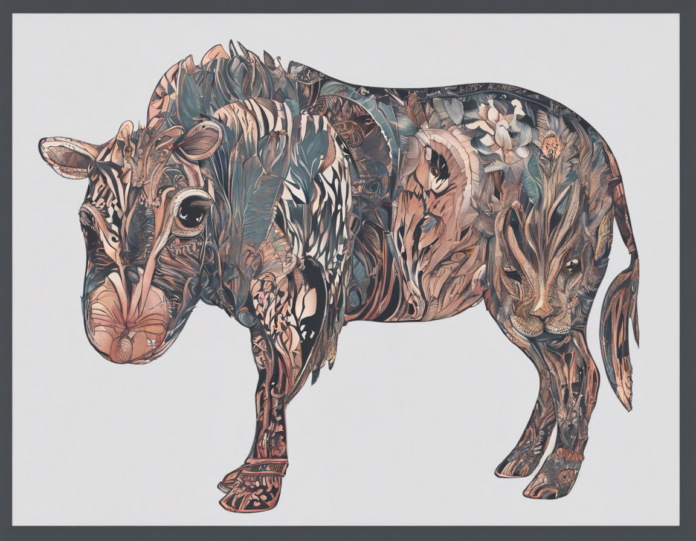Have you ever stopped to think about the meaning behind the names of animals? From dogs and cats to more exotic creatures like giraffes and zebras, every animal’s name has a story behind it. In this blog post, we will delve into the etymology and symbolism of various animal names, uncovering the fascinating tales and meanings hidden within these seemingly simple words.
The Evolution of Animal Names
Animal Names in Different Languages
Animal names vary widely across different languages, often reflecting cultural influences, geographic locations, or physical characteristics of the animals themselves. For example, the English word “cat” has its roots in the Latin word “cattus,” while the Japanese word for cat, “neko,” is derived from an ancient Chinese word.
Scientific vs. Common Names
Many animals have both a common name and a scientific name, the latter usually derived from Latin or Greek roots. While common names are often descriptive or based on folklore, scientific names are standardized and help avoid confusion between different languages. For instance, the scientific name for the domestic dog is “Canis lupus familiaris.”
Symbolism in Animal Names
In many cultures, animals carry symbolic meanings that are reflected in their names. For example, the word “elephant” is derived from the Greek word “elephas,” which means ivory. Elephants have long been associated with wisdom, strength, and loyalty in various mythologies and religions.
Animal Names and Their Origins
Dogs
The word “dog” is believed to have originated from the Old English word “docga,” which referred to a powerful breed of canine. Dogs have been companions to humans for thousands of years, symbolizing loyalty, protection, and companionship.
Cats
The word “cat” can be traced back to the Latin word “cattus” or the Old English word “catt,” both of which referred to domestic cats. Cats have been revered and feared throughout history, often associated with independence, mystery, and magic.
Lions
The word “lion” comes from the Latin word “leo,” which is believed to have originated from an ancient Egyptian word. Lions are powerful symbols of courage, strength, and royalty in many cultures, often depicted as noble and majestic creatures.
Giraffes
The name “giraffe” is thought to have come from the Arabic word “zarāfah,” which means “fast-walker” or “one who walks swiftly.” Giraffes are known for their long necks and graceful movements, symbolizing grace, intuition, and adaptability.
Zebras
The word “zebra” is believed to have originated from a Portuguese word, which in turn came from an African language. Zebras are known for their distinctive black and white stripes, symbolizing individuality, balance, and community.
Birds
Bird names often reflect the sounds they make or their physical characteristics. For example, the word “owl” is thought to mimic the bird’s hooting sound, while the word “hummingbird” describes the rapid movement of its wings.
FAQs
1. How do scientists come up with the scientific names of animals?
Scientific names are typically derived from Latin or Greek roots and are based on various factors such as physical characteristics, behavior, or habitat of the animal.
2. Why do some animals have different names in different languages?
Animal names are often influenced by cultural, historical, and geographical factors, leading to variations in different languages.
3. Are there any superstitions or beliefs associated with certain animal names?
Yes, many cultures have superstitions or beliefs associated with specific animal names, believing them to bring good luck, bad luck, or other meanings.
4. What is the significance of animals in mythology and folklore?
Animals play a significant role in mythology and folklore, often representing various qualities such as wisdom, courage, cunning, and loyalty.
5. How do animals’ names impact our perception of them?
The names we use for animals can shape our attitudes and beliefs about them, influencing our interactions and relationships with these creatures.
6. Are there any extinct animals whose names hold special meanings?
Yes, the names of extinct animals often carry symbolic meanings, reflecting their unique traits, behaviors, or significance in the ecosystem.
7. Do animals recognize their names?
While some animals, especially pets, may respond to their names, the extent to which they understand or recognize their names varies across species.
8. Are there any taboo or sacred animal names in certain cultures?
Yes, some cultures consider certain animal names to be taboo or sacred, often due to religious, spiritual, or symbolic reasons.
9. How do indigenous cultures name animals?
Indigenous cultures often have deep connections with the natural world, and their animal names often reflect a blend of reverence, knowledge, and storytelling traditions.
10. How do zoologists classify and name newly discovered animals?
Zoologists use a systematic approach to classify and name newly discovered animals, following established nomenclature rules to ensure consistency and accuracy in naming.
In conclusion, the names of animals carry rich histories, cultural significances, and symbolic meanings that add depth to our understanding and appreciation of the natural world. Next time you encounter an animal, take a moment to ponder its name and the stories hidden within it, connecting you to a world of wonder and discovery.






